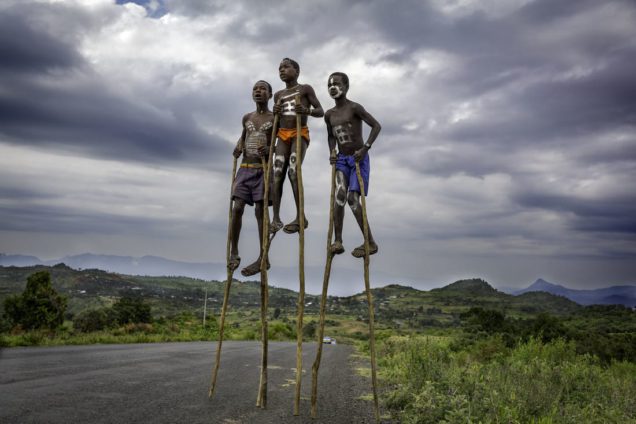For more than a decade, Nancy Richards Farese has been capturing heartwarming images of children around the world, from Burkina Faso to Honduras, Ethiopia to Spain.
Throughout her travels, the American photographer has observed a common trait that seems to transcend cultures: "They play," she said on a video call from Boston, "despite what's going on."
There is perhaps no better illustration of this than Farese's pictures from the sprawling refugee camp in Cox's Bazar, Bangladesh, home to hundreds of thousands of people displaced by Myanmar's Rohingya crisis. Amid the hardship, she documented children blowing pinwheels and pulling a water jug as a makeshift toy with wheels and an old rope.
"You go there to photograph all this trauma and difficulty, and yet you realize, 'Oh, the kids are sliding down a mud hill; they've created these amazing, elaborate games with bottle tops and shoes; or they've made kites or trucks out of found bottles and old cassette tapes'" she said.
"The other adults and I had a mindset about the seriousness of this (situation), and yet the kids were actually doing something, quite naturally, to help them themselves heal."Farese's new book brings together almost 100 photos she's shot while examining child's play across 14 countries. Her young subjects play chess in Jordan and monopoly in Cuba; they jump, flip and run with abandon; they kick and throw balls, climb and skip ropes. Dolls and kites are recurring features, while games of jacks and toss are seemingly global -- albeit with different names and paraphernalia.
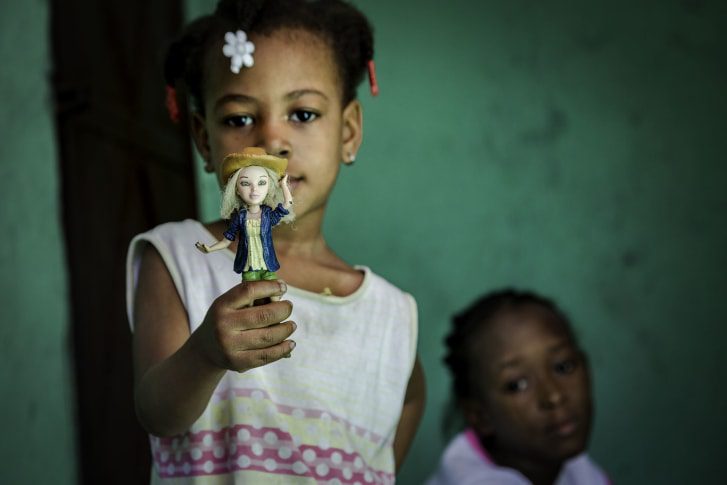
"One of the more ubiquitous games is one that, in Haiti, they called 'cercle,'" she said. "It's where they roll a tire and then use a wire to control it. You see it ubiquitously in Ethiopia and Bangladesh. I've tried to do it, just picking it up and running along the road with kids. It's super hard, but it's also really fun. Immediately, you have to really concentrate, you're laughing and there's a competitiveness to it."
The universality and familiarity of these games may be why her photos resonate with so many people, she said, adding: "We see it (and) we understand the joy of the moment."
A right to play
The book's title, "Potential Space," was inspired by the celebrated pediatrician and psychoanalyst Donald Winnicott, who used the term to describe a space between person and experience -- between imagination and reality -- that fosters creativity and culture. The subtitle of her book, "A Serious Look at Child's Play," meanwhile hints at the photographer's ongoing interest in developmental sciences.
Having researched the importance of play as a fellow at the Harvard Kennedy School, Farese also works with the charity CARE International and the National Institute of Play, which says playing encourages innovation, creativity, flexibility, adaptability and problem-solving in later life. Academic research in the field has demonstrated benefits for children ranging from improved coping skills to greater empathy.
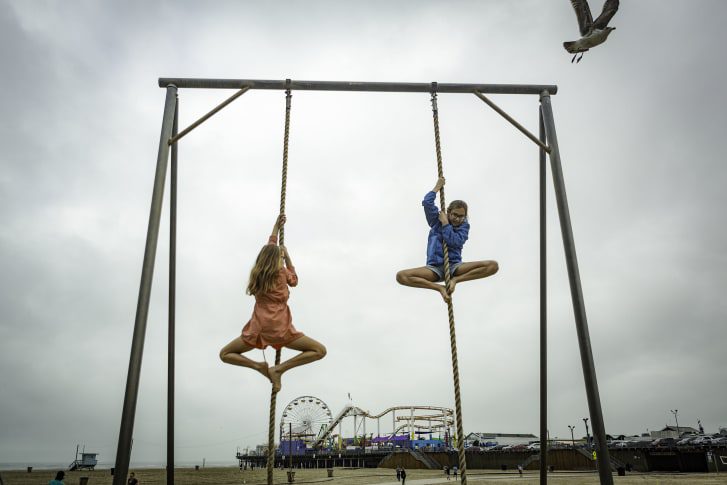
"We kind of dismiss (the importance of playing), but when you talk to scientists or theorists, they understand it as one of the most fundamental things we ever do in our lives," the photographer said. "It completely shapes our emotional, social, physical and internal landscapes. It's just fascinating to realize that our abilities to collaborate, to cooperate, to understand tolerance and inclusion are just simple developmental aspects that we practice in a game of tag. And they are so vitally important."
Playing is not just beneficial for children's intellectual and emotional development: It's a human right enshrined in the UN's Convention on the Rights of the Child. The acts of cooperating and compromising may also help build values crucial to functioning democracies, Farese suggested."
The core principle of play is that the goal is simply to perpetuate the game," she said. "And (children) are learning to do that. So, is there a threat to the way we see each other in a democracy if we don't learn and practice core skills of leveling the playing field and including other people?"
There are many insidious threats to play, in developing and developed countries alike. Though Farese largely steers clear of technology in her uplifting images, she is a vocal critic of the way phones and tablets encroach on traditional forms of fun. And in the West, she added, fears about safety and parental pressure to be "productive" have resulted in the "diminishing role of people allowing their children to play with no purpose -- to just go out the door and play."
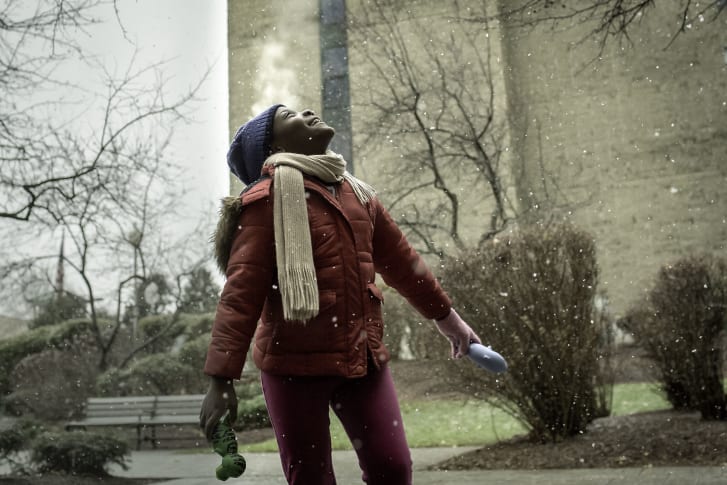
The photographer also argues that consumerism encourages children to see play as synonymous with toys -- to the point that "it doesn't occur to them to play without a toy," she said.
Her photos suggest that material things are not a prerequisite for fun, whether it's kids playing in a Massachusetts water fountain or a boy inspecting his own shadow in Haiti."
They don't have very many toys there," she said of a remote school where she took the latter photo. "And it was extraordinary how much joy they were getting from shadows."
Not just for kids
Working with children can pose unique challenges -- especially for photographers hoping to catch candid, unguarded moments."
The interesting thing about going into the field with a camera in these situations is that the kids immediately flock to you -- and they want to see your toy, if you will," Farese said, adding: "You want them to not see you, and to just do whatever they're going to do. I think the trick is to make yourself as boring as possible... You begin to write or look at something on your camera and twiddle around with it. The kids' attention spans are not that long, so they're not going to spend a huge amount of time with you."
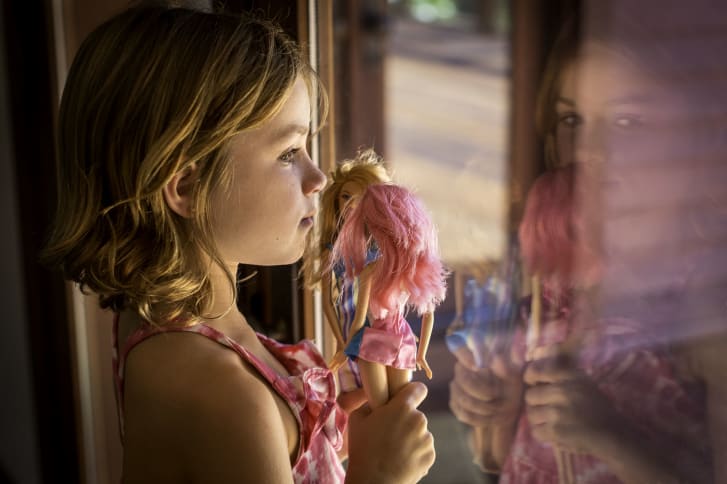
Photography is, however, an "inherently playful activity," she said. And as her attempts at pushing tires reveal, Farese often finds herself inadvertently involved in her subjects' games. Indeed, her advocacy for the benefits of play is not limited to children."
Humans are neurologically developed to be able to play our whole lives," she said. "And yet, socially, we have these ideas that it's child's play, and we shouldn't be doing it -- that it's a waste of time and it's not productive."
"We move through the world every day with this treasure trove of deep-seated memories that are both visual and emotional," she added. "What would happen if we allowed ourselves to play as a regular practice -- to be creative, inclusive, to set aside even five minutes every day as a time when we're in nature, or ... where the objective is to drop out of your sense of self?"
Latest Stories
-
Shamima Muslim urges youth to lead Ghana’s renewal at 18Plus4NDC anniversary
16 minutes -
Akufo-Addo condemns post-election violence, blames NDC
24 minutes -
DAMC, Free Food Company, to distribute 10,000 packs of food to street kids
2 hours -
Kwame Boafo Akuffo: Court ruling on re-collation flawed
2 hours -
Samuel Yaw Adusei: The strategist behind NDC’s electoral security in Ashanti region
2 hours -
I’m confident posterity will judge my performance well – Akufo-Addo
2 hours -
Syria’s minorities seek security as country charts new future
3 hours -
Prof. Nana Aba Appiah Amfo re-appointed as Vice-Chancellor of the University of Ghana
3 hours -
German police probe market attack security and warnings
3 hours -
Grief and anger in Magdeburg after Christmas market attack
3 hours -
Baltasar Coin becomes first Ghanaian meme coin to hit DEX Screener at $100K market cap
4 hours -
EC blames re-collation of disputed results on widespread lawlessness by party supporters
4 hours -
Top 20 Ghanaian songs released in 2024
4 hours -
Beating Messi’s Inter Miami to MLS Cup feels amazing – Joseph Paintsil
5 hours -
NDC administration will reverse all ‘last-minute’ gov’t employee promotions – Asiedu Nketiah
5 hours

